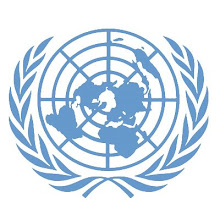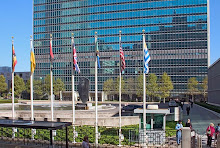The Land of The Ghost Poets, Somalia In The Present:
The cold war was a war without bloodshed, without gunfire and without the destruction of the lives of thousands of innocent by- standers. It was also one of the most hypocritical façades in recent history because while the former USSR and the USA remained fairly unscathed it left a trail of suffering and violence in a beautiful united African nation once referred to as the “land of poets” now doomed to resonate the hatred of the “land of enemies”.
The last stable government Somalia has seen was in the form of the President Mohamed Siad Barre. During his regime in the, bi-polar world, both sides tried greatly to gain control over the strategically located African- horn nation providing military, economic and diplomatic aid to an unstable government that chose to divide the united people of Somalia on the lines of their clans rather than bring them together based on their ethnic unity. Clan wars broke out and the brutality has never paused since then.
The human rights violations in Somalia are atrocious. From arrests of journalists to child abuse, the violence continues even a decade after the collapse of Siad Barre’s government.
Now Somalia is a war ravaged country, a shadow of its former self, devastated by unending famines and police brutality. After the collapse of the Somali government in 1991 and the bitter clan fighting that followed, Mogadishu fell under the control of warlords who terrorized civilians. Sun brazen teenagers with no education who had never witnessed anything but death used brute force and weapons; supplied by both the USA and Russia during the cold war period; to control the landscape.
Early last year the Islamic Courts Union, a coalition of businessmen, Mogadishu clan elders and militant Islamists unexpectedly defeated many of the warlords, some of whom were members of the Transitional Federal Parliament which is an interim Parliament of Somalia that was formed in neighboring Kenya in 2004.
Many Mogadishu residents welcomed the security brought by the Courts, but the aggressive, Islamist tendencies of some of its leaders and the threat they posed to the weak Transitional Federal Government alarmed regional and international observers.
This year has moved the country’s longstanding crisis into a new, chilling cycle of foreign intervention, relentless insurgency and brutal response. Since then food prices have soared in the beleaguered capital and the desperation arising from widespread hunger has made Mogadishu one of the most violent cities in Africa. People who survived sixteen years of war, statelessness and ruthless warlords are fleeing. Civilians are daily victims of the violence, including mass arrests, targeted killings, indiscriminate bombardment and attacks similar to those common in Iraq – remote-control explosives and suicide bombings – with even less reporting and international attention. Somalia’s crisis has been exacerbated by external factors and the threat now extends far beyond its borders threatening the stability of the entire African Horn.
Children play in the ruins of buildings in heart of Mogadishu. “This is no longer human,” said a Somali aid worker. “What you see around you is a whole city that is dying.” People are deliberately killed solely because they are members of a rival clan. Families are forcibly expelled from a town and stripped of their goods and livelihood simply because of their clan identity.
The words ‘mandamus’, ‘habeas corpus’ and ‘certiorari’ mean nothing to the people of Somalia. It has turned into a nation of suppressed, insecure, angry nationals just begging for the world to sit up and take notice. The freedoms and opportunities we so often take for granted are impossible dreams to some. The international community of today is thriving with political discussions and broad-minded views on development; yet, somewhere along the way Somalia got buried under the red African dust. We talk of values like equality and freedom but there is an entire nation that continues to self-destruct. While the developed nations fight new wars and the developing struggle to hold their ground, Somalia struggles to stay alive every moment of every day.
With the spread of diseases even the United Nations is finding itself ill equipped to handle the never ending tumult and turmoil of a once serene nation irrevocable turned incarnadine by differences that once never existed. If the world persists in turning a blind eye to the suffering of Somalia soon enough the only music heard from the Somali sands will be the echo of far away war drums and fire arms along empty streets.
Click on the link below!
Tuesday, May 13, 2008
Somalia
Posted by UNcensored at 8:00 AM
Subscribe to:
Post Comments (Atom)


0 comments:
Post a Comment